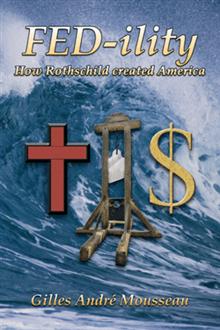After the creation of the FED in 1913, HR had the wherewithal to get rid of what was left of the Holy Roman Empire and create a market economy in Europe. The first order of business was to get rid of the Tsars by financing the Bolsheviks in preparation for WWI. But as it turned out, Lenin took Russia out of the war instead, and the war to end all wars failed. HR’s FED immediately started laying the groundwork for WWII, and decided, in the interim, to get rid of the Pound Sterling as a world reserve currency, for the US Dollar showed a lot more promise as a currency of reference.
So, HR’s FED took advantage of the twenty-year pause between wars to advance its agenda and perpetrate the 1929 market crash. Like in all market manipulations, the bankers made all the wrong decisions in order to create a major market bubble, and when they felt the time was right, they burst it and pretended to fix things by again making all the wrong decisions. That is a well-established procedure as we’ve seen in 2008.
After WWI, America had become the greatest market economy in the world and most of Europe, especially Britain, started buying into the American dream. Since in those days gold was still used in international transactions, gold flowed—or had to appear to flow—into the U.S. as the market bubble grew, and when it burst, HR’s FED simply told the world that the English gold reserves were depleted. HR and its banker friends on both sides of the Atlantic had worked in unison in order to officially move the English gold from the Bank of England vaults to the Federal Reserve Bank vaults, or rather, to appear to do so, for in reality, the FED answers to HR established in the City. Everyone could see that England was investing heavily in America and after the crash, the three Gorgon sisters, Reuters, AFP and AP, simply told the world that the pound was no longer adequately backed by gold, and confidence in the hallowed currency eroded. It was a rather easy tour de main, for the books of HR’s FED and the Bank of England have never had an independent audit.
At the end of the day, the market crash of 1929 had been a diabolical way of replacing the pound with the dollar while at the same time making it appear that it was the result of legitimate business transactions in a free-market economy. HR’s FED depends on the democratic process for its very survival and it can’t allow anything to undermine it.
